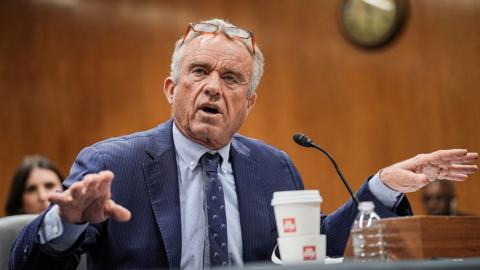RFK Jr. Dismisses Entire US Vaccine Advisory Committee, Citing Conflicts of Interest
 United States
Health
United States
Health

RFK Jr. dismissed the US vaccine advisory committee, citing conflicts of interest. Experts worry about the impact on vaccination rates and disease spread.
RFK Jr. Dismisses Entire US Vaccine Advisory Committee
US Health and Human Services Secretary Robert F. Kennedy Jr. has taken the controversial step of removing all 17 members of the Advisory Committee on Immunization Practices (ACIP), the body that provides official recommendations on immunizations.
Justification for the Dismissal
In an editorial published in the Wall Street Journal, Kennedy asserted that conflicts of interest within the ACIP were eroding public confidence in vaccinations. His stated aim is to "ensure the American people receive the safest vaccines possible."
Criticism and Concerns
The decision has been met with criticism from doctors and health experts, who point to Kennedy's long-held skepticism regarding the safety and efficacy of various vaccines.
Kennedy's Claims
Kennedy claimed the committee had become a mere "rubber stamp" for vaccines, alleging undue influence from health authorities and drug companies. He specifically stated that many ACIP members had received substantial funding from pharmaceutical companies.
Reactions and Future Implications
Senator Bill Cassidy expressed concern that the ACIP would be filled with individuals lacking adequate knowledge about vaccines. Dr. Bruce Scott, president of the American Medical Association, warned that the mass dismissal could worsen declining vaccination rates and lead to the increased spread of vaccine-preventable illnesses. The future composition of the ACIP and its upcoming meeting are uncertain.





